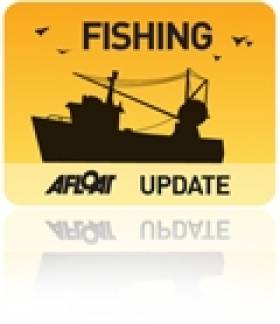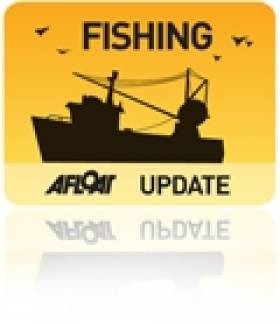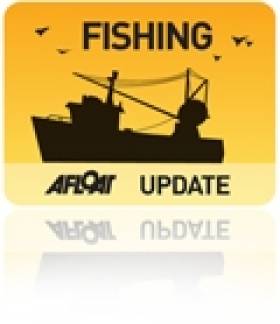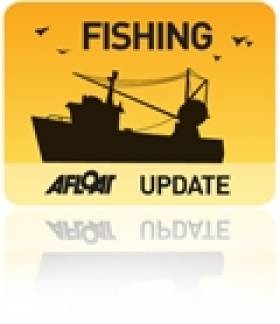Displaying items by tag: fish farms
Marine Institute Hits Back At Criticism Over Fish Farm Sea Lice Breaches
#SeaLice - Ireland was cited for 39 breaches of sea lice levels at fish farms in the first 10 months of this year.
And as The Irish Times reports, the figure is "more than double" that recorded in the whole of 2013.
That was the message from Don Staniford of the Global Alliance Against Industrial Aquaculture (GAAIA), an NGO that compiles data on fish farms across Europe.
But the Marine Institute has hit back, saying that levels were "low" during the spring migration period for wild salmon, the time when they are most at risk from sea lice.
The Irish Times has more on the story HERE.
Fish Farm Firm Suspends Harvest Till Weather Improves
#FishFarms - Fish farming has been suspended by one of Ireland's largest salmon aquaculture firms due to the current poor weather and effects of warming waters, according to The Irish Times.
In its latest quarterly report, Marine Harvest cited "very challenging" conditions in Irish waters thanks to last summer's high sea temperatures, which in turn have resulted in a big rise in jellyfish numbers.
And the situation has been exacerbated by "the most consistently stormy period since Marine Harvest Ireland began farming in Ireland in 1979" that have also wreaked havoc for coastal shellfish farms.
The conditioons have preventing access to coastal fish farming sites, according to the firm's technical manager Catherine McManus, who said operations are expected to resume later this month.
The Irish Times has more on the story HERE.
Farmed Fish Shows Compliance Says Government Body
#fishfarm – Residues levels in farmed finfish as monitored by the Marine Institute in accordance with the National Residue Control Plan (NRCP) showed no non-compliant results in 2012 for the seventh year running according to a Marine Institute statement.
The Department of Agriculture, Food and the Marine have now released the results of testing of food of animal origin carried out under the National Residue Control Plan for 2012.
The NCRP, which was approved by the European Commission, is an important component of the Department's food safety controls and is implemented under a service contract with the Food Safety Authority of Ireland.
Since 1999 The Marine Institute has implemented the National Residues Monitoring Programme for aquaculture. This is carried out on behalf of the Sea Fisheries Protection Authority (SFPA), which is the responsible organisation for residue controls on farmed finfish.
In 2012, in excess of 759 tests for 1,596 substance determinations were carried out on 169 samples of farmed finfish for a range of residues, including banned and unauthorised substances, various authorised veterinary treatments, and environmental contaminants. No non-compliant results were reported from the national monitoring programme for farmed finfish in 2012, continuing the welcome trend demonstrating an absence of residues over the last seven years.
More information on the residues programme can be found on the Marine Institute website and in the residues monitoring programme report Chemical Residue in Irish Farmed Finfish.
Seafood Firm Meets Ministers Over Expansion Plans
Minister for Fisheries and Food Brendan Smith and Minister of State Sean Connick have met one of the world’s biggest seafood companies to discuss the potential for expansion of the industry in Ireland, The Irish Times reports.
Marine Harvest, which presently employs 250 people in Ireland and 5,000 worldwide, hopes to produce 10-12,000 tonnes of premium salmon for export from its fish farms in Donegal, Mayo, Cork and Kerry in 2012.
The company sees potential to double its production and employment in Ireland over the next 10 years and discussed with the ministers how the marine infrastructure can best accommodate this.
“I see enormous potential for the expansion of both finfish and shellfish aquaculture," said Minister Connick.



























































